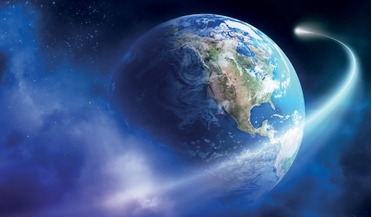 September 2023
The Institute of Biomedical Problems - Sixty years of contributing to the development of space biomedicine
September 2023
The Institute of Biomedical Problems - Sixty years of contributing to the development of space biomedicine
... the Institute was formed by the Ministry of Defence’s laboratories of the State Research Testing Institute of Aviation and Space Medicine of the Ministry of Health’s Institute of Biophysics. At the same time, IBMP was being reinforced with qualified...
 April 2025
Pioneering human reproduction in space
April 2025
Pioneering human reproduction in space
... the pioneers tackling this complex issue is SpaceBorn United, a Netherlands-based company leading early research into space procreation. In this article, CEO Dr Egbert Edelbroek shares insights into the groundbreaking journey his company – alongside...
 May 2017
World needs strong space governance system
May 2017
World needs strong space governance system
... abandoning of the international institutions that remained, until the mid-1970s, the global centre for space diplomacy. For space-related affairs, the most important of such institutions is the UN (United Nations), particularly its Committee on the...
 August 2018
Ever-changing views on space resource utilisation
August 2018
Ever-changing views on space resource utilisation
... exploitation’ has something of a negative hue predisposing opinions on the subject. Similarly, neither ‘use of outer space’ or ‘space exploration’ encompass any commercial motive, as they refer to generic and rather scientific purposes. So far, the...
 February 2019
The Space Elevator – an alternative path to space?
February 2019
The Space Elevator – an alternative path to space?
... and centripetal force at GEO lies at a distance of ~42,164 km from Earth’s centre, 35,786 km above the equator. The Space Elevator is also an extremely simple construct compared to a bridge, basically a flawless, extremely long rope more akin to the...
 July 2019
Stepping into space with STEAM
July 2019
Stepping into space with STEAM
..., yes, settlers too, are currently to be found in classrooms around the world. And as our world embraces space science and space exploration on a whole new level, it is imperative that we address the question: “How will we thrive, not just...